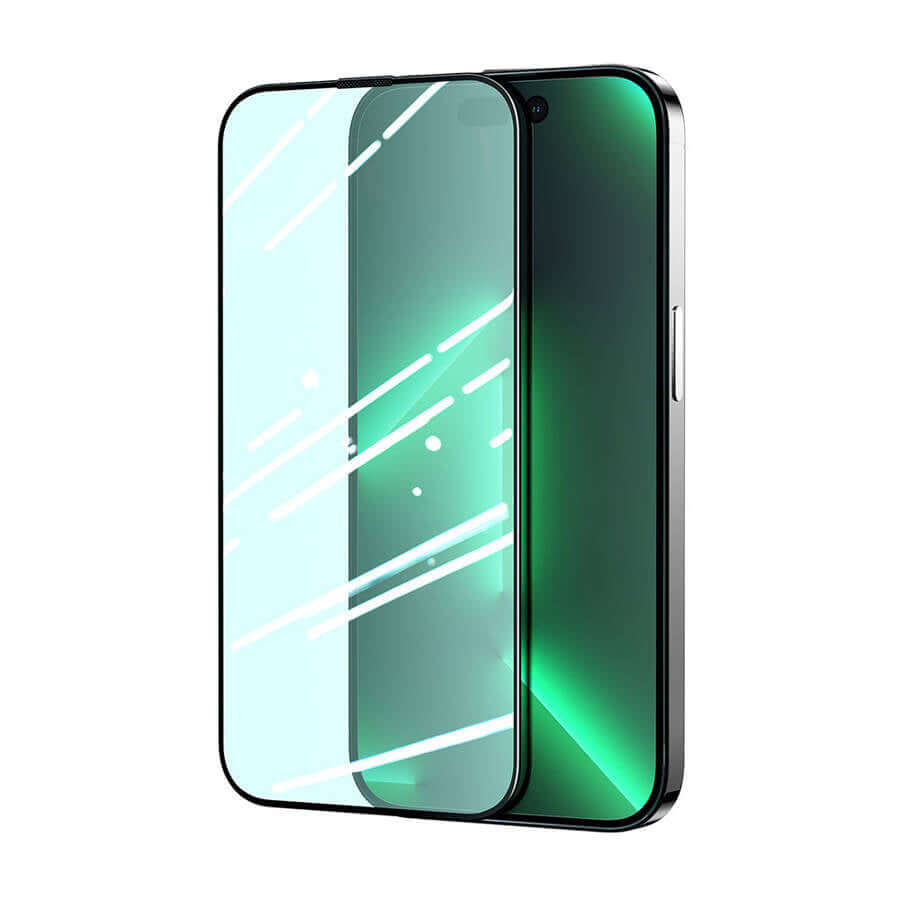Mobile Screen Protectors: Why They’re Essential for Your Phone

Introduction to Mobile Screen Protectors
If you’ve ever dropped your smartphone or had it scratched by keys in your pocket, you know how important mobile screen protectors can be. These simple, yet essential accessories play a major role in preserving the longevity of your device. With mobile phones costing hundreds of dollars, screen protectors are a small investment that can save you from expensive repairs down the road. So, why are they so important, and what kinds are available? Let’s dive in!
What Are Mobile Screen Protectors?
A mobiles fx. com is a thin layer of material that you apply to the surface of your phone’s screen to safeguard it against scratches, cracks, and other damage. They act as a barrier, absorbing impacts and preventing your device’s actual screen from taking the brunt of daily wear and tear.
Definition and Purpose
The primary purpose of a screen protector is to protect your device’s screen from damage caused by drops, bumps, and even daily activities like putting it in your bag or pocket. These thin, transparent layers help to keep your screen looking pristine, enhancing both the aesthetic and functional quality of your phone.
Types of Screen Protectors
There are several types of screen protectors available on the market today, each offering different levels of protection and varying features. These include:
- Tempered Glass: Popular for its durability and smooth touch.
- Plastic Film: Thinner and less durable but offers flexibility.
- Privacy Screen: Blocks visibility from others, useful in public spaces.
- Anti-glare/Matte: Reduces reflections and fingerprints, making it easier to use outdoors.
Benefits of Using Mobile Screen Protectors
Using a screen protector comes with a variety of benefits, some of which are more obvious than others. Let’s explore the key advantages:
Protection Against Scratches and Cracks
The most obvious benefit is protection from scratches and cracks. Everyday objects like keys, coins, or even dust can scratch your phone screen, reducing its clarity and appeal. A screen protector serves as the first line of defense, helping preserve your phone’s display.
Enhanced Durability
A quality screen protector, especially a tempered glass protector, can greatly enhance the durability of your phone screen. While it may not prevent all types of damage, it will absorb some of the shock from drops or impacts, reducing the chances of cracks or shattered glass.
Improved Resale Value
If you plan on selling or trading in your device later, a well-maintained phone will fetch a higher price. A screen protector helps keep your screen in good condition, which is one of the most important aspects for buyers evaluating the condition of a phone.
Different Types of Screen Protectors
Choosing the right screen protector is crucial to ensuring your device stays safe. Here’s a look at the most common types of screen protectors:
Tempered Glass Screen Protectors
Tempered glass is the most durable type of screen protector. It provides a solid barrier that resists scratches, shattering, and fingerprints while maintaining the smooth, responsive feel of your touchscreen. These protectors are thicker than plastic film but offer the highest level of protection.
Plastic Film Screen Protectors
Plastic film screen protectors are thin and flexible. While they offer basic protection from scratches and minor impacts, they aren’t as durable as tempered glass. However, they are often more affordable and can provide a smoother surface compared to older plastic screen protectors.
Privacy Screen Protectors
For those who value their privacy, privacy screen protectors are an excellent option. They prevent people around you from seeing your phone’s screen by narrowing the viewing angle. This can be especially helpful in public places like trains or coffee shops.
Anti-glare and Matte Screen Protectors
Anti-glare and matte screen protectors reduce reflections and improve visibility, especially when you’re using your phone outdoors in bright sunlight. They also minimize fingerprints, making the screen easier to clean.
How to Choose the Right Screen Protector
When selecting a screen protector, there are several factors to consider to ensure it meets your needs.
Compatibility with Device
Not all screen protectors are made for every phone. Be sure to choose one that’s designed specifically for your device’s model and screen size. This ensures a perfect fit and the best protection.
Thickness and Material
Screen protectors come in various thicknesses, from ultra-thin plastic films to thick tempered glass protectors. Consider what level of protection you need. If you’re prone to dropping your phone, thicker, tempered glass might be your best option.
Ease of Application
Some screen protectors are easier to apply than others. Look for protectors that come with installation kits, which often include cleaning wipes, dust removers, and alignment tools. This will make the process much easier.
Budget and Price Range
The price of screen protectors can vary widely. While plastic film protectors are usually cheaper, tempered glass options tend to cost more. If you want superior protection, you may need to invest a little more.
How to Install a Screen Protector
Installing a screen protector might seem like a daunting task, but with the right tools and patience, it’s quite easy.
Step-by-Step Guide
- Clean your phone screen: Use a microfiber cloth and a cleaning wipe to remove any dust, oil, or fingerprints.
- Align the protector: Carefully line up the screen protector with your phone screen.
- Apply the protector: Slowly apply the protector starting from one edge, smoothing out air bubbles as you go.
- Press firmly: Once it’s in place, press down along the edges to ensure it sticks.
Common Mistakes to Avoid
- Skipping the cleaning step: Dirt can create air bubbles under the screen protector.
- Using a protector that’s too big or too small: Ensure it fits perfectly to avoid gaps on the edges.
- Applying too much pressure: Pressing too hard can cause the protector to crack or break.
How to Maintain Your Screen Protector
While screen protectors are designed to protect your phone, they still need some care to maintain their effectiveness.
Cleaning and Care Tips
Regularly clean your screen protector with a microfiber cloth to keep it free from dust, fingerprints, and smudges. For deeper cleaning, use a damp cloth, but avoid harsh chemicals that could damage the material.
When to Replace Your Screen Protector
If you notice cracks, deep scratches, or peeling edges, it’s time to replace your screen protector. Over time, even the best protectors will show signs of wear.
Myths and Misconceptions About Screen Protectors
There are many misconceptions about screen protectors that could make people hesitant to use them.
They Make Screens Less Responsive
This is not true. Modern screen protectors, especially tempered glass, are designed to maintain the touch sensitivity of your phone screen. You won’t feel any difference in responsiveness.
They Affect Screen Clarity
While older plastic protectors may have caused some distortion, today’s high-quality screen protectors are designed to preserve screen clarity and color accuracy.
They Are Expensive
Screen protectors come in a wide range of prices, from affordable plastic films to more expensive tempered glass protectors. You can easily find one that fits your budget.
The Future of Mobile Screen Protectors
As smartphone technology continues to evolve, so do the accessories designed to protect them.
Advances in Technology
Future screen protectors may include features like self-healing materials that repair minor scratches or increased durability against drops and impacts. Innovation in materials will make screen protection more effective and seamless.
Sustainability and Eco-friendly Options
As consumers become more eco-conscious, sustainable screen protectors made from recycled or biodegradable materials may gain popularity, offering both protection and environmental benefits.
Conclusion
Mobile screen protectors are more than just a nice-to-have accessory—they’re essential for keeping your phone safe from damage. Whether you choose a tempered glass protector, a plastic film, or a privacy option, the right screen protector can enhance your device’s durability and maintain its resale value. Invest in one today and keep your phone looking and functioning like new!




